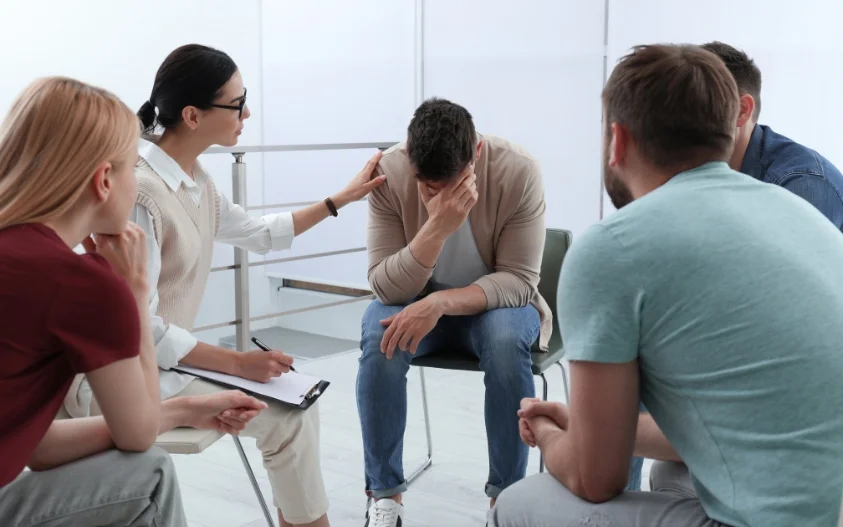24/7 Helpline:
(866) 899-221924/7 Helpline:
(866) 899-2219
Learn more about Group Therapy centers in Gate
Group Therapy in Other Cities

Other Insurance Options

Cigna

Lucent
Beacon

Group Health Incorporated

American Behavioral

Choice Care Network

Access to Recovery (ATR) Voucher

Oxford

Optima

BlueShield

Meritain

Covered California

MVP Healthcare

Ambetter

EmblemHealth

Anthem

Optum

Molina Healthcare

MHNNet Behavioral Health

UMR

















